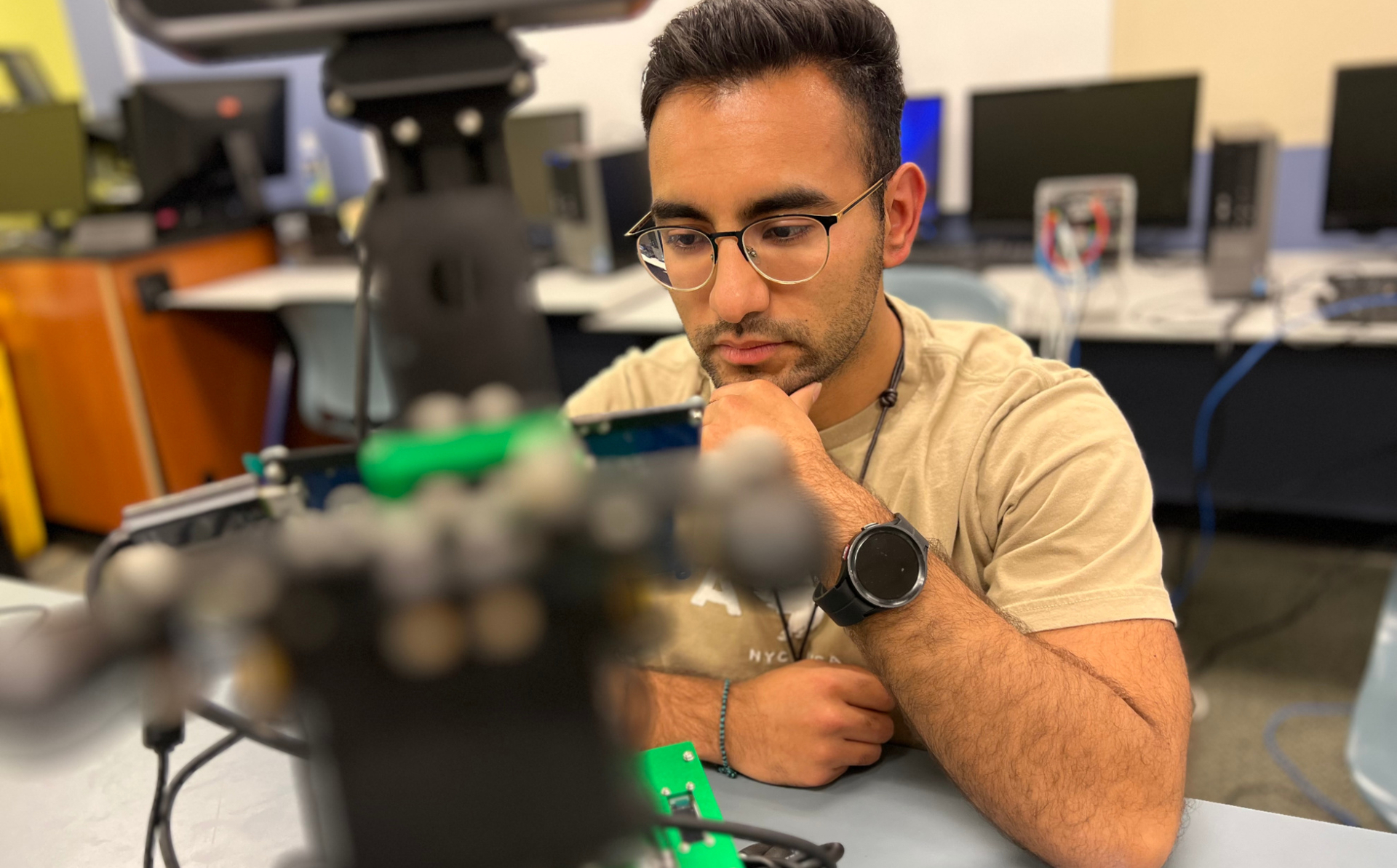
Alex Nunez Palomares ’27 is one of seven Guilford College and Early College of Guilford students working on the project.
Guilford students are using Artificial Intelligence to train protoype robots to detect and pick up litter on state shorelines.
“I wanted to see what I could learn about robots and machine learning. We’re kind of like the robots ourselves — each class, we’re getting smarter.”
If only beachgoers left behind nothing more than footprints in the sand. Unfortunately, beach litter is a growing issue, threatening coastal environments and the wildlife that depends on them.
In response, a group of students from Guilford College and The Early College at Guilford are developing artificially intelligent robots equipped with image recognition to detect and collect surface-level garbage near the shoreline.
It’s the kind of cutting-edge research typically associated with R1 institutions — universities with the highest level of research activity. But in the basement of Bauman Hall, Guilford students are gather weekly to build and refine two prototype robots they hope will become larger, autonomous machines cleaning up North Carolina beaches as early as next year.
“This is work you’d usually see at a major research university,” says Chafic Bou-Saba, Associate Professor of Computing Technology and Information Systems. “But that doesn’t faze our students. They’re showing up with enthusiasm and a real passion for what we’re achieving.”
One of those students is Alex Nunez Palomares ’27, a Computer Technology & Information Systems major. When Alex joined the project, he had limited experience with artificial intelligence and robotics, which is exactly why he applied.
“I wanted to see what I could learn about robots and machine learning,” he says. “We’re kind of like the robots ourselves — each class, we’re getting smarter.”
Alex hopes to pursue a master’s degree after Guilford and eventually work in robotics. “The more I learn from this project, the more I realize how many different paths I could take in this field,” he says.
The College received a $10,000 North Carolina Sea Grant concept award last year to help launch the initiative. Purchasing the actual robots was the easy part — now students are training the robots using thousands of images of trash items like bottles, cans, plastic bags and cigarette butts.
Some items are proving more difficult for the AI to detect. “The bags and cigarette butts are trickier — it’s taking a little longer for the robots to learn those,” Alex admits. “But we’re getting there.”
Alex is joined by fellow CTIS students Mo Mohammadi ’26 and Aprilia Welsh ’26, along with Early College students Foy Lane, Emma He, Anya Li and Srija Roy. Samantha Roth, Guilford’s Economic Development Administration Grant Manager, helped secure the grant and volunteers as project manager.
Looking ahead, Chafic hopes projects like this will continue to grow at Guilford. In today’s rapidly changing world, where climate change and pollution threaten coastal ecosystems, the integration of robotics emerges as a beacon of hope for conservation.
“Using AI to improve the environment and support both people and nature — that’s what Guilford is all about,” he says.

